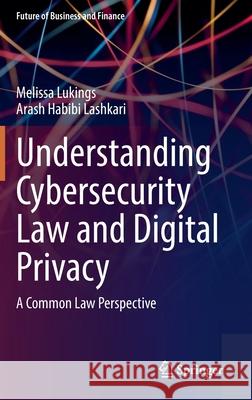Understanding Cybersecurity Law and Digital Privacy: A Common Law Perspective » książka
topmenu
Understanding Cybersecurity Law and Digital Privacy: A Common Law Perspective
ISBN-13: 9783030887032 / Angielski / Twarda / 2021 / 200 str.
Understanding Cybersecurity Law and Digital Privacy: A Common Law Perspective
ISBN-13: 9783030887032 / Angielski / Twarda / 2021 / 200 str.
cena 656,17
(netto: 624,92 VAT: 5%)
Najniższa cena z 30 dni: 539,74
(netto: 624,92 VAT: 5%)
Najniższa cena z 30 dni: 539,74
Termin realizacji zamówienia:
ok. 16-18 dni roboczych.
ok. 16-18 dni roboczych.
Darmowa dostawa!
Kategorie:
Kategorie BISAC:
Wydawca:
Springer
Język:
Angielski
ISBN-13:
9783030887032
Rok wydania:
2021
Ilość stron:
200
Waga:
0.45 kg
Wymiary:
23.39 x 15.6 x 1.27
Oprawa:
Twarda
Wolumenów:
01
Dodatkowe informacje:
Wydanie ilustrowane











